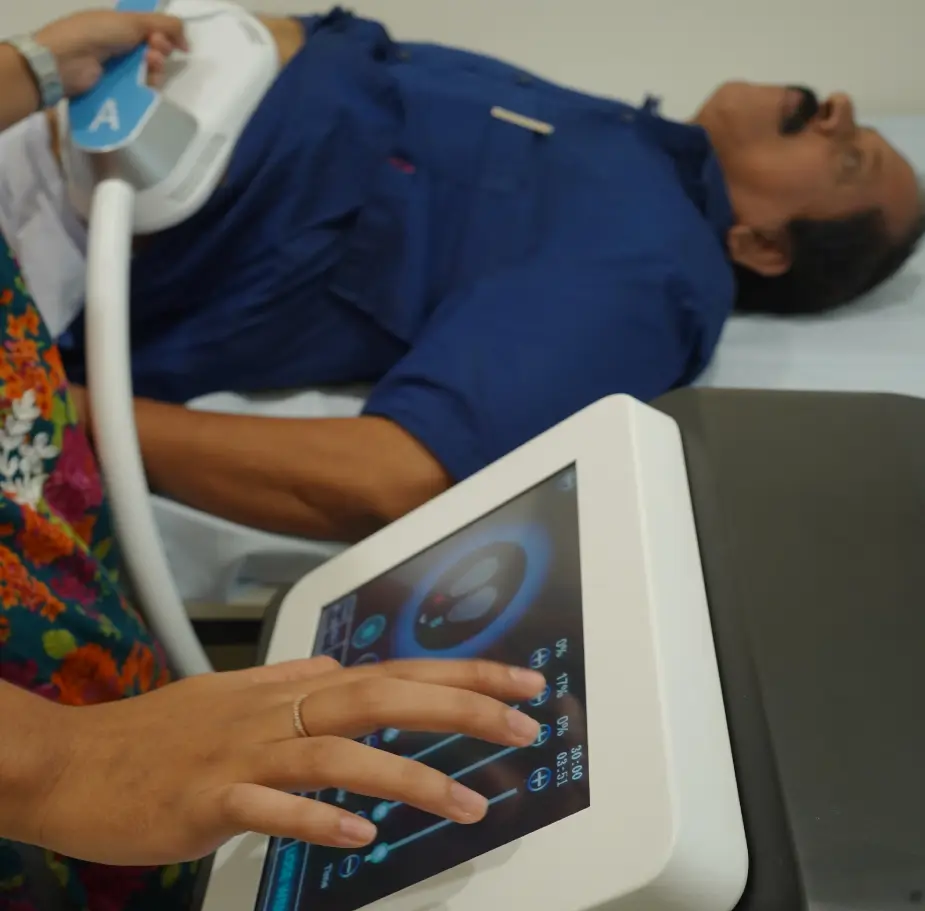Excess Belly Fat Reduction
Symptoms
Increased Waist Size: Noticeable expansion of the waistline and an accumulation of fat around the abdominal area.
Clothing Tightness: Difficulty fitting into previously comfortable clothing, especially around the waist.
Visible Fat Rolls: The presence of visible rolls or bulges of fat, particularly when sitting or bending.
Difficulty Breathing: Excess belly fat can put pressure on the diaphragm, making it harder to breathe comfortably.
Back Pain: Strain on the lower back due to the weight of excess abdominal fat.
Increased Risk of Health Conditions: Excess belly fat is associated with an increased risk of health issues, including cardiovascular diseases and type 2 diabetes.
Insulin Resistance: A higher likelihood of insulin resistance, which can lead to elevated blood sugar levels.
Hormonal Changes: Belly fat can influence hormonal balance, potentially leading to imbalances in estrogen and testosterone.
Sleep Disruptions: Increased risk of sleep apnea and other sleep disturbances due to excess fat in the abdominal region.
Reduced Mobility: Difficulty in performing physical activities and reduced overall mobility due to the extra weight carried in the abdominal area.
Causes
Causes for excess belly fat may include:
Diagnosis
Diagnosis for excess belly fat reduction may involve:
Treatments
Excess fat refers to the presence of too much body fat, especially beyond what is considered healthy for an individual. This extra fat can accumulate in various areas of the body, commonly around the waist and abdomen. Having excess fat is often associated with an increased risk of health issues such as heart disease, diabetes, and other metabolic conditions. It can result from factors like an unhealthy diet, lack of physical activity, genetics, hormonal imbalances, or a combination of these.
Our Medical Weight Loss & Maintenance Program offers a comprehensive approach to achieving weight loss and reducing excess belly fat. Incorporating cutting-edge technologies like High-Intensity Focused Electromagnetic (HIFEM) and Radio Frequency (RF) therapy, our program targets muscle enhancement and metabolic stimulation critical for effective fat reduction. Complemented by Acceptance-Based Behavioral Therapy, we address the psychological aspects of weight management. Additional therapeutic modalities, including Extracorporeal Shockwave Therapy (ESWT) and Cryotherapy, contribute to holistic well-being. Tailored exercises and rehabilitation plans are integrated to promote physical health, while our lifestyle management strategies ensure sustainable weight loss. This multifaceted approach, personalized to individual needs, forms the foundation of our program, fostering comprehensive and effective outcomes for those seeking weight loss and excess belly fat reduction.

Tummy Fat Reduction without Surgery
HIFEM & RF offer safer alternatives with effective results.
